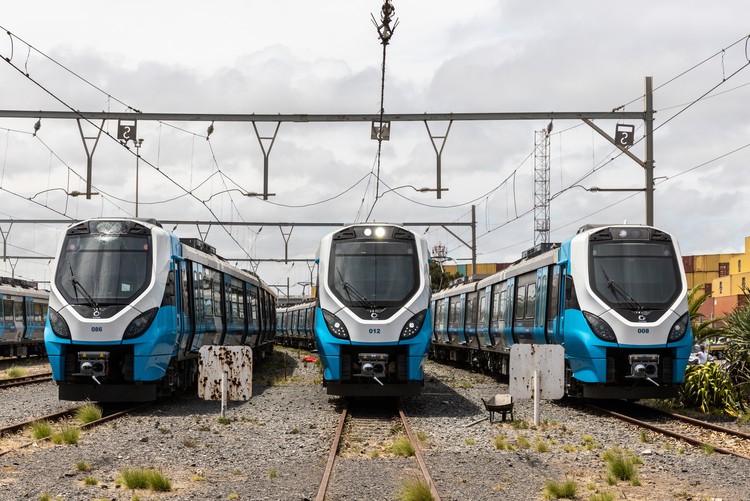
10 September 2024
Trains at the Paarden Eiland Passenger Rail Agency of South Africa (PRASA) depot in Cape Town. Archive photo: Ashraf Hendricks
The City of Cape Town has approached lawyers acting for the Passenger Rail Agency of South Africa (PRASA) for a response to a service level plan for management of the Metrorail network.
The City has received no response, more than a month after sending PRASA on 29 July a “legally vetted” service level plan which had been negotiated with PRASA, for its own vetting and signature.
A letter from the City to PRASA’s attorneys on 30 August, followed with another on 6 September, relates to an application at the Western Cape High Court brought by commuter activist organisation #UniteBehind in October last year to compel PRASA and the City to finalise a service level plan for commuter rail.
The City’s lawyers state the City has “followed up on numerous occasions” since submitting the plan, but has had no response. They ask PRASA to explain the delay and ask that PRASA “prioritise the finalisation of this matter”.
Agreement on the plan would be the first step toward the municipality managing commuter rail in line with national policy and the Land Transport Act of 2009.
The Act states commuter rail should be located “in the appropriate sphere of government”, and the City has been trying to claim this responsibility since 2017, but with little headway to date.
Mayor Geordin Hill-Lewis unsuccessfully attempted to get former transport minister Fikile Mbalula to establish a working committee of City and Department of Transport officials to discuss how commuter rail could be devolved to the City. Mbalula had gazetted rail policy to this effect in 2022.
In 2023, former transport minister Sindiswe Chikunga also rebuffed the City’s attempts to move toward devolution of commuter rail, but Mayco member for urban mobility Roberto Quintas has said he is hopeful Barbara Creecy (the new transport minister) will be more responsive.
Hill-Lewis last year also threatened to launch a formal intergovernmental dispute with PRASA if there was no response to a request to form a joint working committee on rail devolution.
According to #UniteBehind, a legally enforceable service level plan would include joint planning between PRASA and the City, such as the setting of targets and outcomes. PRASA would manage and operate the commuter rail service while the City would fulfil its legal oversight obligations such as scrutinising contracts and ensuring that the plan is implemented.
#UniteBehind legal officer Joseph Mayson said the service level plan the City has submitted to PRASA is “very tame”, and they would be meeting with their lawyers on Friday to discuss it.
“My feeling is it is a very weak document; it uses pre-existing responsibilities and doesn’t introduce any higher standards than PRASA says it already wants to comply with in terms of its corporate plan.”
Mayson said a plan should involve the “voice of the commuter”, and to his knowledge #UniteBehind, as the primary civil society organisation on commuter rail, has never been consulted.
However, said Mayson, if PRASA signed it, the City would have a role in holding PRASA accountable to the standards of commuter rail provision contained in the plan.
He said the service level plan was a precursor to greater devolution of rail to the municipality.
Asked if, in approaching PRASA’s lawyers, the City felt it had exhausted political avenues of engagement with PRASA to finalise a service level plan, Quintas said the City was “not at liberty to divulge details as this would be in contravention of our agreement with PRASA”.
PRASA’s comment will be added to this story if it is received.